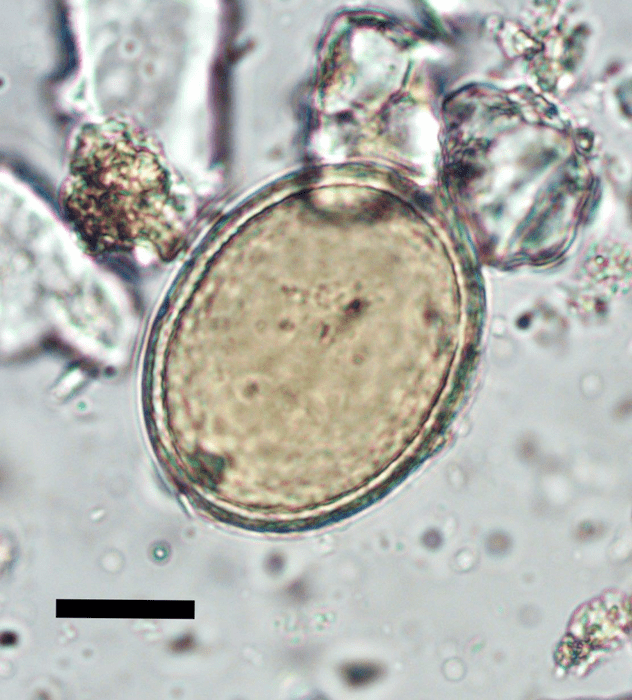It turns out that the medieval monks of Cambridge were absolutely riddled with intestinal worms, far more so than the average townsperson. That’s pretty surprising considering members of a friary were some of the lucky few in medieval society who had access to half-decent toilets and hand-washing facilities.
Archaeologists at the University of Cambridge in the UK recently took samples of soil from around the pelvis of 19 monks buried on the former grounds of the Augustinian friary in the city and 25 “average Joes” who were laid to rest at the All Saints cemetery.
Using microscope imaging to spot parasite eggs, they found evidence that 11 of the friars (58 percent) were infected by parasitic worms, compared with just eight of the townspeople (32 percent). Their findings are published in the International Journal of Paleopathology.
“The friars of medieval Cambridge appear to have been riddled with parasites,” Dr Piers Mitchell, study lead author from Cambridge’s Department of Archaeology, said in a statement.
Roundworm egg found in the soil around the pelvis of a friar from medieval Cambridge, as viewed through a microscope. Image credit: Tianyi Wang
“Roundworm was the most common infection, but we found evidence for whipworm infection as well. These are both spread by poor sanitation,” added Cambridge researcher Tianyi Wang.
Medieval culture isn’t exactly known for its exceptional levels of hygiene and that reputation would be true for the majority of the population. Most people would not have had running water in their households and would simply “do their business” into a cesspit toilet that didn’t drain away waste. Given that parasitic worms are spread by poop, this unsavory toilet situation would seriously up your chances of becoming infected.
Monasteries had it comparatively cushy. Many of these grand properties featured running water systems that helped rinse out the latrine, giving them a definite edge when it came to cleanliness.
So, were the Augustinian friars of Cambridge a particularly unhygienic bunch with an aversion to hand washing? The researchers aren’t totally sure, but they speculate that it might have something to do with their vegetable patch habits.
Friars are known to have grown vegetables on their land and the researchers have a suspicion they might have been fertilizing the crops with human faces (perhaps their own) or pig poop.
“One possibility is that the friars manured their vegetable gardens with human faeces, not unusual in the medieval period, and this may have led to repeated infection with the worms,” explained Mitchell.
It also looks like these infected people weren’t living in ignorance. Sources from this time suggest that people had a fair understanding of roundworm and whipworm. Medical texts found in Cambridge from around the 14th century have whole chapters on worms and later texts written by Franciscan monks suggested certain remedies to ease the infection.
Unfortunately, it looks like they didn’t get the memo about keeping poop away from your dinner.
Source Link: Medieval Monks "Riddled With Parasites" Due To Dodgy Poop Practises
